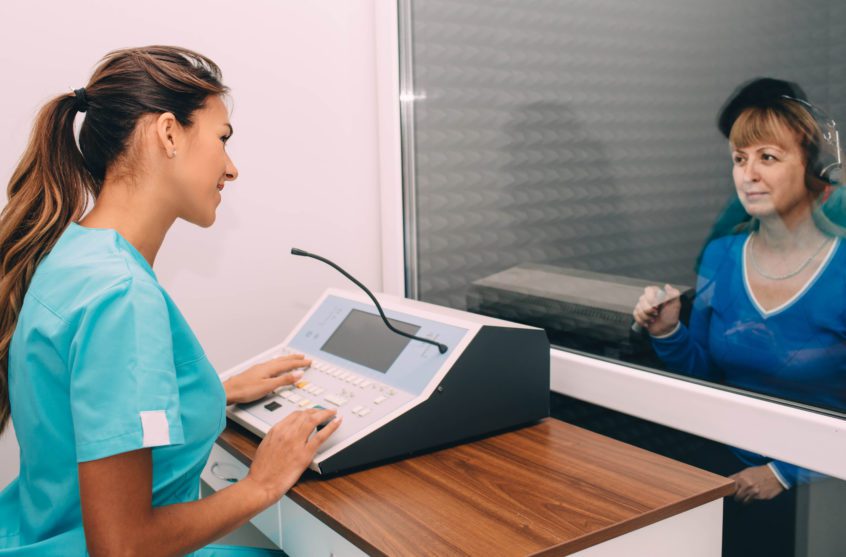May is Better Hearing Month and the perfect time to learn more about audiologists, the healthcare professionals who can help determine whether you have a hearing loss, and can help you hear your best.
What is an audiologist?
An audiologist is a degreed professional who specializes in the diagnosis and non-medical treatment of hearing loss, tinnitus, and balance disorders. Audiologists receive extensive education in hearing and balance disorders. They have earned a doctoral degree, indicated by the credentials Au.D., (Doctor of Audiology—clinical degree); or Ph.D. (Doctor of Philosophy—research and/or clinical research degree).
As part of their post-graduate four-year doctoral training, audiologists spend a final year completing an externship experience supervised by a licensed audiologist. Associated Audiologists has externs working alongside their degreed professionals. The externship provides practical, hands-on, advanced experience and ensures that these professionals have the experience necessary to care for patients upon completion of their degree requirements.
Furthermore, audiologists can specialize in a wide range of areas, including prescribing, fitting and adjusting hearing aids and other assistive devices.
In addition, audiologists also screen the hearing of newborns, teach listening/communication skills and strategies, assess individuals with central auditory processing disorders, diagnose and manage tinnitus and misophonia (sound sensitivity), provide and manage hearing conservation, and diagnose and treat dizziness and balance disorders.
Audiologists may be invited to provide clinical teaching and adjunct clinical supervision at universities and colleges that have audiology programs. Some members of the Associated Audiologists team serve as adjunct faculty at the University of Kansas Medical Center.
According to the American Speech-Language-Hearing Association, audiologists are qualified to:
- Evaluate and treat hearing, balance, and tinnitus disorders.
- Select and custom-fit hearing aids and assistive technology.
- Evaluate and treat dizziness and balance problems.
- Screen individuals to identify possible hearing disorders. Testing can confirm if a hearing loss is present and determine the kind and degree of loss.
- Explain how to protect hearing from the effects of noise.
- Advise people about how to treat and cope with ringing in the ears or tinnitus.
Though over-the-counter hearing aids may soon be available to the public, working with an audiologist is especially important for a couple of reasons. First, in order to know whether you have a hearing loss and how severe it is, you need to be evaluated by an audiologist.
Second, if your hearing loss is moderate to severe, you’ll require prescription hearing aids which are medical devices regulated by the Food and Drug Administration (FDA). These devices must be recommended, prescribed, and fit by licensed professionals. This standard is in place to protect the individual with hearing loss, because not all individuals are candidates for hearing aids.
In addition, audiologists are knowledgeable regarding the hundreds of types and styles of hearing aids available, and make recommendations based on your type of hearing loss, lifestyle and budget. They should use verification equipment, such as real-ear measurements, to check that your hearing aids are programmed for your specific hearing loss and are working at peak performance.
All of these are important issues that can impact your satisfaction with hearing aids. An audiologist also can make recommendations for assistive hearing technology to help you hear better in challenging listening situations, such as in meetings, on the phone, or in noisy restaurants.
And, an audiologist should schedule follow-up appointments with you to be certain your hearing aids continue to function well, and to monitor changes in your hearing.
All members of the Associated Audiologists team are doctoral-level audiologists who belong to the American Speech-Language-Hearing Association and the Academy of Doctors of Audiology. They uphold the professional codes of ethics of these organizations and keep their patients’ best interests at the forefront of all they do.



